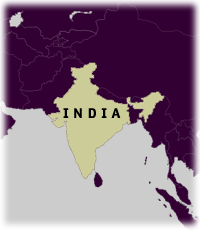 |
|
|
 India's IT Bill Follows the UNCITRAL's Model Law on E-Commerce India's IT Bill Follows the UNCITRAL's Model Law on E-CommerceMadanmohan Rao (madanr@planetasia.com) interviews legal consultant Shakeel Kudrolli Legal consultant Shakeel Kudrolli (skudrolli@vsnl.com) has been practicing law in India’s Mumbai High Court for the past 14 years. In this exclusive interview on cyberlaw, he shares his views on digital certificate authorities in India, the IT bill, domain name disputes, intellectual property rights, and attitudes toward Internet law in India. Which countries have the most favorable cyberlaws in place? Are Indian experts heavily involved in international forums on these issues? The U.S. probably has the most favorable cyberlaws in place. The approach taken by the U.S. was to enact specific legislations to address specific legal issues. Some of the legislations that are relevant for the medium are the Anticybersquatting Consumer Protection Act of 1993, the Digital Millennium Copyright Act of 1998, the Electronic Communication Privacy Act, the Internet Tax Freedom Act, and the Online Child Pornography Preventive Act. Some states of the U.S. like Utah and Florida have also taken the lead by enacting digital signature acts. Singapore and Malaysia also have favorable cyberlaws in place. Unfortunately, Indian experts are not involved to any great extent in international forums on these issues. What are the technical and administrative moves needed to bring into place a digital certificate authority scheme in India? The Reserve Bank of India [RBI] along with other government agencies drawn from the Ministry of Commerce is finalizing guidelines to establish a Certificate Authority and a Public Key Authority. The RBI is working closely with SunMicrosystems to establish a National Technical Standard. Under section 19 of the Information Technology [IT] Bill of 1999, the central government is required to appoint a controller of certification authority. The functions of the controller include exercising supervision over the activities of certifying authorities and laying down standards to be maintained by certifying authorities. Under section 87 of the IT Bill, a Cyber Regulations Advisory Committee is to be constituted that would advise the controller in framing regulations under the act. On commencement of the act, the advisory committee and the controller need to be appointed and steps need to be taken by them to lay down the required regulations to enable the scheme to work. What are the top three trends you notice in authentication technologies/techniques? The leading authentication methods seem to be cryptography, scanning of handwritten signatures, and biometrics techniques. Cryptography is being used widely and has found expression in the legislation of many countries. Some examples of biometrics techniques are use of the iris of the eye and DNA for identification and authentication. The iris technique is user-friendly and has the highest degree of certainty. While the DNA of an identical twin could be the same, the iris will be different. The DNA method is also more expensive. However, these technologies are still developing, and questions are being raised on personal privacy. Where do international organizations like the World Intellectual Property Organization [WIPO] and international accords like the Berne Convention stand with respect to copyright laws on the Internet? Copyright in cyberspace—nationally, regionally, and internationally—is dominated by implementation of the World Intellectual Property Organization Copyright Treaty [WCT] and the WIPO Performances and Phonograms Treaty [WPPT] of December 1996. These treaties require ratification by 30 countries so that they may enter into force before December 2001. At present, nine countries have ratified the WCT, and seven the WPPT. India has so far not signed the treaties. Entry into force of these treaties will promote basic standards of protection for copyright and related rights on the Internet and other digital networks. The two notable accomplishments of the WCT are protection for technological measures and protection for copyright management. Information protection for technological measures deals with prohibition from circumvention with a view to protecting the rights of copyright owners. At the WIPO Conference at Geneva in September 1999, the WIPO’s Digital Agenda set guidelines and goals for seeking solutions to problems raised by the impact of electronic commerce on intellectual property rights. What is the status of international arbitration mechanisms for cyberlaw disputes? Where does India stand in this regard? The use of online mechanisms for the resolution of commercial disputes is in its infancy. In the United States, one area in which online mechanisms have received increasing use is that of automated settlement negotiations. Here the relief sought is simply the payment of some amount of money. Two companies have developed systems for online negotiation of such disputes. The American Arbitration Association is currently working on a program to provide online services for arbitrator selection, filing of claims, and responses and transmission of awards. The WIPO Arbitration and Mediation Center is developing an online Internet-based system for administering disputes. Any online dispute resolution mechanism will face many questions as it begins to conduct arbitration online: Will national courts recognize awards rendered online? For purposes of statues and treaties such as the New York Convention, where will an online arbitration take place and where will the award have been made? Also, is the evidence required to be submitted electronically? The answers to such questions and others will need to be resolved so that users can be assured of the integrity and effectiveness of the process. It may be that the international arbitration treaties such as the New York Convention will have to be amended to reflect the new technology, because Article 4 of the convention provides for the arbitration agreement to be in writing. India enacted the Arbitration and Conciliation Act of 1996 based on the UNCITRAL’s Model Law, and an Arbitration Agreement in electronic form meets the requirement of writing as spelled out in section 7 of the act. On the coming into force of the IT Bill, disputes can be resolved by using online arbitration mechanisms. What kinds of transaction/contract laws would you recommend for e-commerce to really take off in India? The IT Bill follows the UNCITRAL’s Model Law on E-commerce for contractual issues, and it may not be necessary for any specific contract laws to be enacted for e-commerce to grow. What kinds of online taxation issues will need to be addressed in India? Tax administrators throughout the world face the formidable task of protecting their revenue bases without hindering the development of new technologies. Numerous governments and fiscal organizations and institutions such as the OECD [Organization for Economic Cooperation and Development] are focusing on how to address them in a spirit of collective cooperation. Most countries have advocated principles of neutrality, certainty, avoidance of double taxation, and low compliance cost. A substantive issue raised by new technologies is identifying the country or countries that have the jurisdiction to tax such income. Whether a Web server will constitute a permanent establishment or not and whether an ISP [Internet service provider] is an agent are questions that are relevant. Classification of income arising from transactions in digitized information such as computer programs, books, music, or images is also an issue that requires consideration. The distinction between royalty, sale of goods, and service income needs to be refined in light of the case of transmitting and reproducing digitized information. The Indian Authority of Advance Ruling [AAR] recently ruled that payments made by an Indian company for accessing a foreign company’s computer system in the U.S. were royalty income and therefore taxable in India. In the U.S., though, the Internet Tax Freedom Act lays a moratorium up to year 2005 on internal taxes by states on the Internet. Several U.S. states continue to tax Internet transactions in different ways, relying on their sovereignty to impose sales and/or use taxes, which are outside the jurisdiction of the federal government. States like Connecticut tax consumers for Internet access by characterizing it as a communication service. In California, sales of goods over the Internet are treated the same as traditional sales. Several states tax downloaded material from the Net by characterizing the downloaded material as tangible personal property, particularly if it is a priced product. Indian authorities will confront these issues faced by U.S. states. How should India tackle the looming challenges in domain name dispute resolution? Cases of cybersquatting and trademark violations including the use of metatags and hyperlinks have gone to the courts. The Delhi High Court recently in a case of the Tata Group granted ex parte injunctions against parties who are residing outside India on grounds analogous to the effects test of the jurisdiction of American courts. Corporations are also adopting preventive measures, and the latest trend is multiple domain name registrations. There is an increasing tendency to take up whatever domain name is available, which is leading to a blurring of the top-level domain names of .com, ..net, and .org. In addition, variants of names are also being resorted to. The legislation on trademarks allowing registration of service marks and famous marks is expected soon. Registering domain names as trademarks or service marks would be one way to tackle domain name disputes. The WIPO Arbitration and Mediation Center has developed and will soon introduce an online dispute resolution facility specifically designed to facilitate the efficient administration and resolution of disputes arising out of the registration and use of Internet domain names. The final report of the WIPO on domain name disputes contains about 300 recommendations member countries should adopt with a view to meeting the challenges in this area. The various options that could be exercised for tackling domain name disputes are:
|

